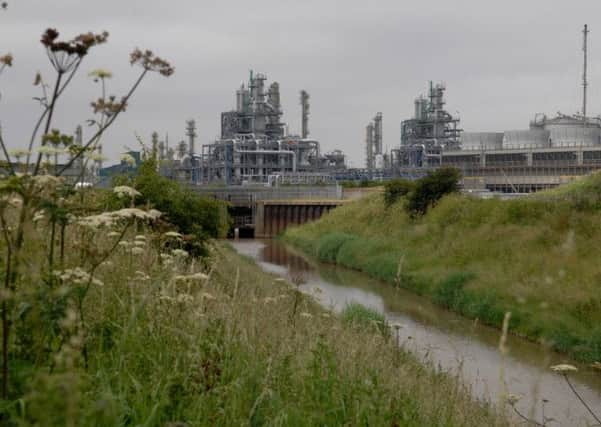Farmers bank benefits of new ways of selling crops


It comes on the back of an improved UK wheat harvest, which returned to pre-2012 levels after a long settled period of mild weather.
Historically, much of the feed grade wheat grown in the region has been exported into mainland Europe to feed animals and for use in European biofuel production. However, since Vivergo opened its £350m plant last year at Saltend, near Hull, the region’s farmers have been taking advantage of an alternative market for their wheat.
Advertisement
Hide AdAdvertisement
Hide AdThe firm offers one of a growing number of outlets for farmers to supply biomass to in the region, with Drax power station also working with around 100 farmers directly and many more indirectly through the likes of straw merchants, who typically supply miscanthus, straw and some willow.
Most of Drax’s suppliers are from Yorkshire and Lincolnshire, with small pockets of growers further afield that supply into local pellet plants before the pellets are transported to the power station in Selby.
James Copeland, regional environment and land use adviser with the National Farmers’ Union, said biomass represented another great way for farmers to add value to their operations provided that contract terms were fair.
“It is an opportunity for any farmer looking into diversifying their business and it certainly helps give a greater opportunity for flexibility within the marketplace,” he said.
Advertisement
Hide AdAdvertisement
Hide Ad“And there has been a noticeable benefit of the market opportunities in the region as a result of having Vivergo’s bioethanol plant on the doorstep.”
Vivergo uses 1.1m tonnes of animal feed grade wheat per year, which is commonly used for animal consumption, to make renewable transport fuel and protein rich animal feed for UK livestock. It aims to source animal feed grade wheat from farms within a 50-mile radius of its Saltend base.
Rick Taylor, the company’s commercial director, said: “Not only are we supporting local farmers, but we’re also bolstering the UK economy by creating around 2,400 jobs so far, with this figure set to increase to around 3,800 once the plant is at full production later this year. Many of those jobs will be in the agricultural sector.”
Wheat farmer John Holtby, who runs Dowthorpe Hall Farm at Skirlaugh, a few miles from the Vivergo biorefinery, said: “With on farm and UK wheat production returning to normal levels, to have a local home for our feed wheat is invaluable.”
Advertisement
Hide AdAdvertisement
Hide AdAnother new opportunity in the biomass sector is opening up for the region’s farmers, with Pelco, a new straw pelleting company seeking to build long-term relationships with landowners and farmers within a 50-mile radius of its pelleting plants.
The firm plans to open five plants in total, including one at Selby for the input of 132,000 tonnes of oilseed rape and wheat straw each year.
Construction of the Selby plant is due to begin in early 2016 and straw contracts will be in place for that year’s harvest onwards.
According to the deputy president of the NFU’s, the supply of crops for energy and feed production offers another important avenue for farmers to build resilience against volatility in the world market.
Advertisement
Hide AdAdvertisement
Hide AdMinette Batters, who farms in Wiltshire, said: “The UK biofuels industry has an important role to play in adding value to UK arable crops such as feed wheat and oilseed rape. Vitally the industry also produces a high protein animal feed.
“With consistent levels of production, the industry has the ability to help shelter livestock farmers from the volatility of global commodity markets and reduce UK dependency on imported soya.”